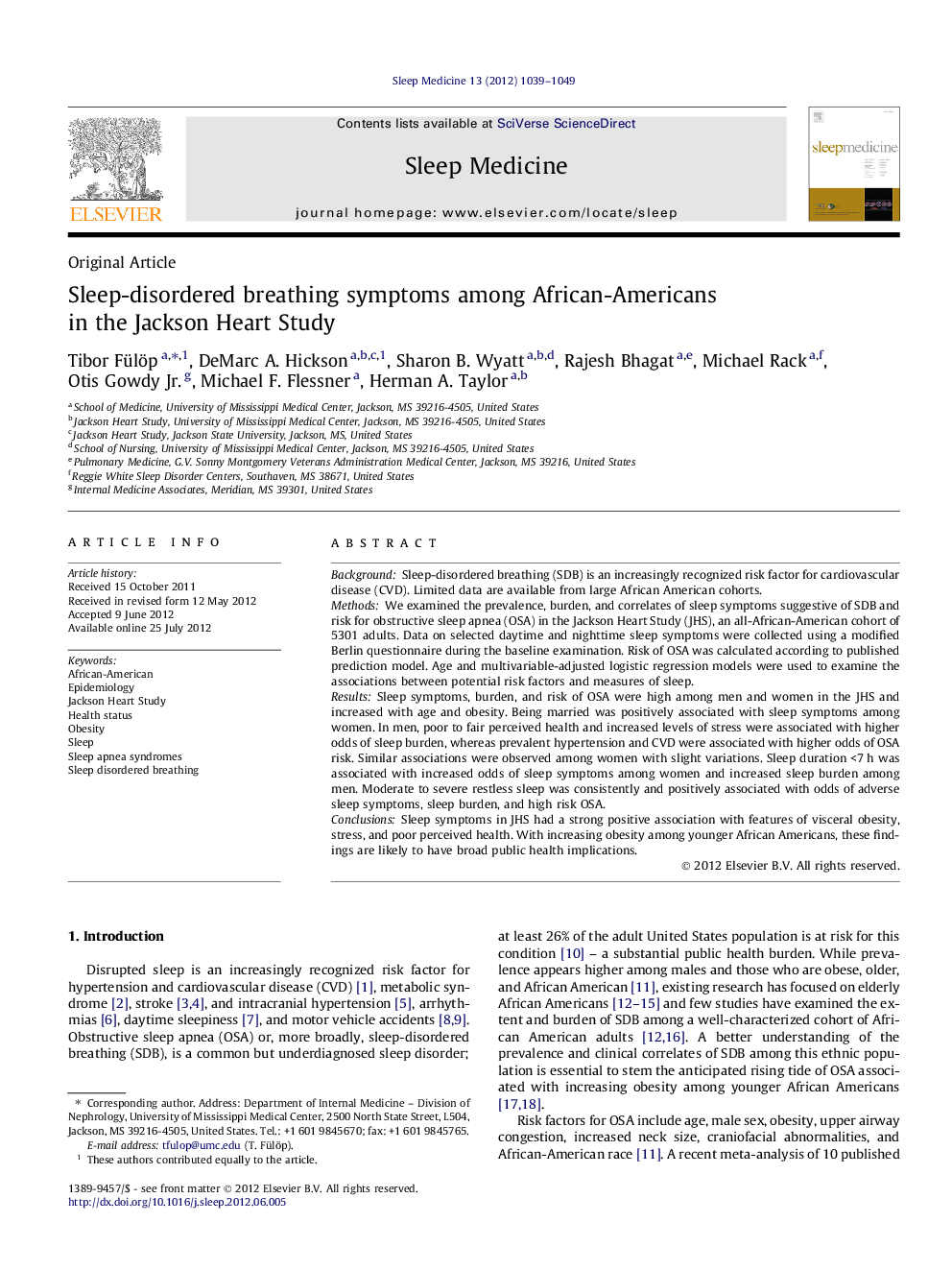| Article ID | Journal | Published Year | Pages | File Type |
|---|---|---|---|---|
| 6061456 | Sleep Medicine | 2012 | 11 Pages |
BackgroundSleep-disordered breathing (SDB) is an increasingly recognized risk factor for cardiovascular disease (CVD). Limited data are available from large African American cohorts.MethodsWe examined the prevalence, burden, and correlates of sleep symptoms suggestive of SDB and risk for obstructive sleep apnea (OSA) in the Jackson Heart Study (JHS), an all-African-American cohort of 5301 adults. Data on selected daytime and nighttime sleep symptoms were collected using a modified Berlin questionnaire during the baseline examination. Risk of OSA was calculated according to published prediction model. Age and multivariable-adjusted logistic regression models were used to examine the associations between potential risk factors and measures of sleep.ResultsSleep symptoms, burden, and risk of OSA were high among men and women in the JHS and increased with age and obesity. Being married was positively associated with sleep symptoms among women. In men, poor to fair perceived health and increased levels of stress were associated with higher odds of sleep burden, whereas prevalent hypertension and CVD were associated with higher odds of OSA risk. Similar associations were observed among women with slight variations. Sleep duration <7Â h was associated with increased odds of sleep symptoms among women and increased sleep burden among men. Moderate to severe restless sleep was consistently and positively associated with odds of adverse sleep symptoms, sleep burden, and high risk OSA.ConclusionsSleep symptoms in JHS had a strong positive association with features of visceral obesity, stress, and poor perceived health. With increasing obesity among younger African Americans, these findings are likely to have broad public health implications.
